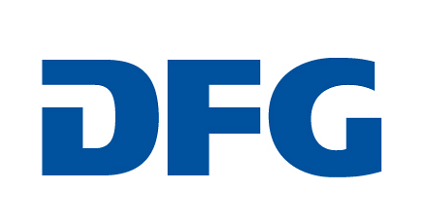Publications
Per-Olof Busch and Andrea Liese (2017), The Authority of International Public Administrations, in: Michael W. Bauer, Christoph Knill and Steffen Eckhard (Hrsg.), International Bureaucracy. Challenges and Lessons for Public Administration Research, Basingstoke: Palgrave Macmillan, 97-122.
Work in progress
Busch, Per-Olof, Hauke Feil, Jana Herold and Andrea Liese (2017): Explaining the expert authority of international bureaucracies. 11th Pan-European Conference on International Relations, Barcelona, 13. - 16. September 2017 & 2017 ECPR General Conference, Oslo, 6. - 9. September 2017
Busch, Per-Olof, Hauke Feil, Jana Herold and Andrea Liese (2017): Consideration of Policy Advice. 2017 conference of the European Political Science Association, Milan, 22. - 24. Juni 2017
Busch, Per-Olof, Hauke Feil, Jana Herold and Andrea Liese (2017): Assessing the expert authority of international bureaucracies. 7th Annual Conference of the European Political Science Association, Milan, 22. - 24. Juni 2017.
Busch, Per-Olof, Hauke Feil, Jana Herold and Andrea Liese (2017): Who counts as an expert and why? Expert status of international bureaucracies. 4th European Workshop in International Studies 2017, Cardiff, 7. - 9. Juni 2017
Consideration of Expert Knowledge. International Public Administrations as Policy Experts
Principal Investigators: Andrea Liese; Per-Olof Busch
Research Associates: Jana Herold; Hauke Feil
Time period: 2015-2017
The project starts from the observation of studies in International Relations that in many different policy areas international organizations increasingly use expert knowledge when they seek to contribute to national and international policy-making. In this context, international public administrations, which are embedded in international organizations as distinct organizational entity, fulfil important functions, above all by generating, processing and disseminating expert knowledge. For example, they make expert knowledge available to their member states. They also derive and communicate specific advice for the development of national and international policies on the basis of that expert knowledge. Amongst others, they formulate policy guidelines for the reform of existing or the introduction of new policies. Their advice may target all or individual states and the advice may include individual policies or comprehensive policy packages. Moreover, international public administrations give direct advice to states or prepare meetings with state delegates, during which new policies are discussed and/or developed. These observations raise the question, to what extent and how the expert knowledge and the resulting policy advice of international public administrations are recognized and taken into account in states as their primary target group. They also raise the more fundamental question to what extent international public administrations may be able to orient the preferences, strategies, and policies of states in international policy-making as a result of their expert knowledge and policy advice. Against this background and adopting an International Relations perspective, we therefore devote our research to the question to what extent, under what conditions and why do states take into account expert knowledge and policy advice of international public administrations as a premise for further decisions and actions in the policy-making process? The research is part of the larger research group "International Public Administrations". More information about the research group here.


